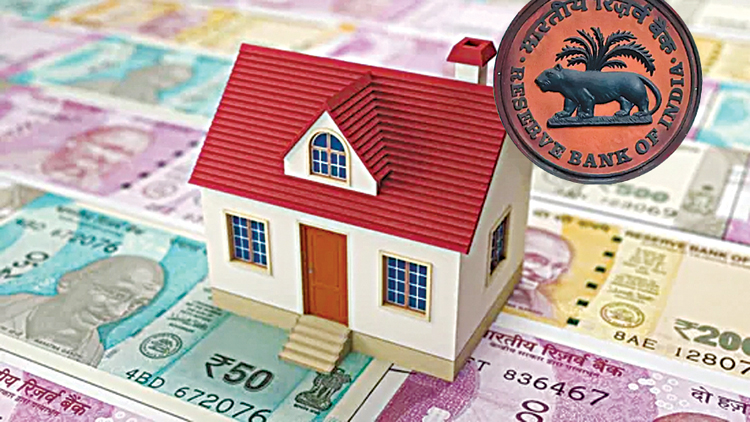New Delhi, Aug 5 (FN Bureau) Your home loan EMI could again rise or tenure could go longer with the Reserve Bank of India (RBI) on Friday raising the benchmark lending rate by 50 basis points to 5.40% with immediate effect. “The repo rate hike will cause some minimum fluctuation in the EMIs or the tenure on the home loans but demand for housing will remain robust,” said Y. Viswanatha Gowd, MD & CEO of LIC Housing Finance. The RBI has raised the repo rate, the rate at which RBI lends to banks, has been raised for the third time since May this year increasing the rate by 140 basis points. A basis point is equivalent to 0.01%. “The RBI has hiked repo rates by 50 bps, this move is anticipated as the central bank prioritised taming inflation over boosting the growth rate.
Further, this third consecutive rate hike by the RBI will put some pressure on home loan rates,” said Cyrus Mody, Managing Partner, Viceroy Properties LLP. In order to contain runaway inflation the central bank has been tightening monetary policy. With the latest repo rate hike, the benchmark lending rate has gone above the pre-pandemic level of 5.15% in February 2020. “The frontloading of the repo rate hike was needed as inflation, despite some softening, is still way above the upper tolerance limit. It also partly addresses the spillover risks from sharper rate hikes by the US Federal Reserve (Fed) and other major central banks,” rating agency CRISIL said. The leading industry body FICCI noted that RBI has maintained consistency in the policy statement made by focusing on withdrawal of accommodation to contain inflation.
It said that inflation has been over the comfort range of the central bank, however, the recent moderation in global commodity prices should hopefully offer some respite going ahead. “The uncertainty on external front remains on fore. Nonetheless, the central bank has retained the growth forecast for 2022-23 at 7.2 percent – which is encouraging,” said Sanjiv Mehta, President, FICCI. He noted that capacity utilization rate for Q4 2021-22 at 75.3 is over the long-term average and should lead to improvement in investment activities going forward.

